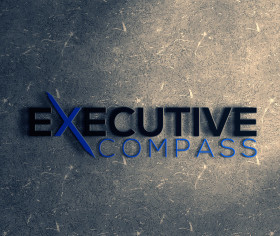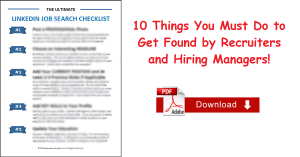There are probably more articles written about resume writing than any other topic on the Internet, and you’ll find avid support for almost every approach or type of resume. At the end of the day, a lot of the noise is academic. There are a few things that every resume must contain, and there are several unbreakable rules to follow; the rest (in my opinion) is opinion.
Every resume must contain your name and contact information. Don’t laugh, I’ve looked at over 40,000 resumes (that’s when I quit counting), and you’d be surprised… I received many with the name omitted or no contact information. Guess where they ended up?
Hiring managers or recruiters are looking to match potential candidates to open positions. They want to know, among other things, what experience you might bring to the job. So, your resume must include a chronological listing of your experience. There are many proponents of a functional resume, but even if that’s appropriate, your resume should still list your employment history in chronological order with dates. The reader will be trying to mentally construct your “story” while reading your resume; don’t make it too difficult or appear like you are hiding something.
You should include your educational history, highlighting dates, degrees, and the specific college, university, trade school, or certification program. This is the number one area where candidates are tempted to stretch the truth. If you didn’t graduate or finish a degree, do not claim or make it appear as if you did! Even if you get the offer, you can have it rescinded later when the truth is found out. There are too many examples in the recent news; don’t be another.
If you don’t have a degree, don’t apologize. Some companies have strict policies about not hiring individuals without a degree. If this is a rule, there is no way you can negotiate around it, so don’t grovel. Most interviewers that ask about this area are probing for honesty and work ethic. Look the questioner in the eye and give them a straightforward, honest, succinct answer. Smile and be sincere. You can even say something like, “I understand the value of a good education, but I think on the job experience is important, too.” Speak to the primary reason you didn’t attend or finish and pivot to your work experience and accomplishments on the job.
There are strong opinions out there about whether your resume should contain an Objective or not. Usually the objectives you see on resume are white-washed, general statements of the obvious. I say, “forget it”. Instead, put a Professional Summary or Summary of Experience statement at the top of your resume and summarize in 1-3 sentences the unique combination of your experiences, character, and approach to work that makes you a compelling candidate. Remember, the objective of the resume is to get an interview and to be a stage prop for the interviewer during that interview. It is the interview that will get you the job.
Lastly, is the “other” stuff. Things like certifications, awards, memberships, and publications. Put these kinds of things at the bottom of your resume if there is room, and if they are compelling and appropriate. If they are neither, leave them off, unless you are a recent college grad or very early in your career where you may need “filler”.
Okay, here are the top resume writing rules that cannot be broken, because they make the biggest difference.
#1 Do not lie! Do not change job titles, exaggerate on dates of employment, make up positions that simply didn’t exist, or mention a degree that wasn’t awarded. There simply is no way around this rule.
#2 No typos! Nothing is more frustrating and causes your resume to stop being read more quickly than a typo. You will be the butt of jokes; your resume will be shown to others as a joke. Have a friend or associate read your resume for misspellings or mistakes that you are likely to overlook because you have been looking at and tweaking your resume for too long.
#3 Be succinct. The person that is going to be reading your resume reads hundreds (at least). Get to the point. The reader will be conjuring an image of you in their mind as they briefly scan (6-10 seconds maybe) your resume. If they imagine you as a meandering, never-get-to-the-point kind of individual before they’ve ever talked to you, you’re toast.
#4 Be readable. This may seem odd, but your resume should be pleasing to the eye. Balance white space with content; don’t submit an odd-looking document. Don’t be all left-justified or scrunched on the page with a small font. Present a nicely formatted document where the pertinent points are right there in black and white.


